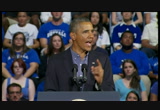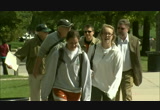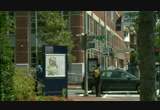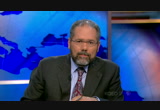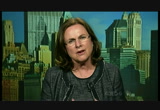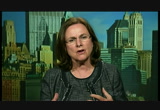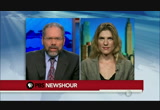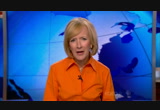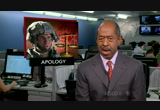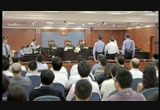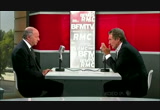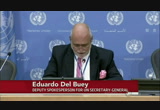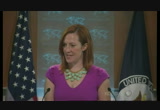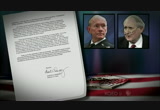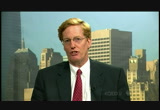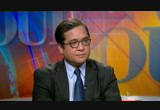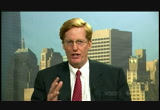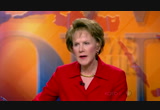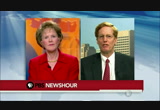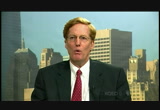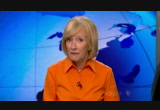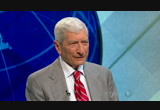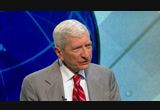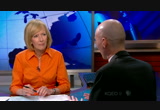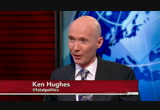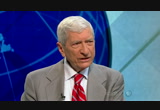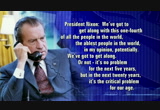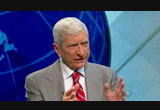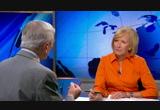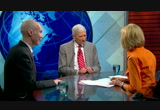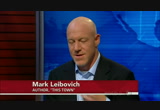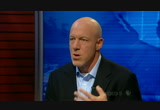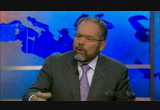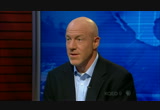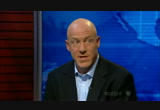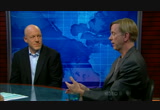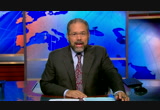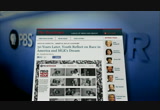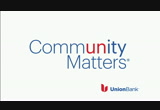tv PBS News Hour PBS August 22, 2013 6:00pm-7:01pm PDT
6:00 pm
captioning sponsored by macneil/lehrer productions >> woodruff: president obama announced sweeping changes which could make college more affordable and accountable. good evening, i'm judy woodruff. >> suarez: and i'm ray suarez. on the "newshour" tonight, at the core of the president's plan-- a rating system to see which colleges teach well while holding down costs. we get the details and ask if it is the right way to go. >> woodruff: then, u.s. intelligence weighs evidence of a possible poison gas attack that may have killed hundreds outside damascus. margaret warner looks at outrage around the world. >> suarez: a fresh series of secret tapes reveals former president nixon's attempts to control the watergate scandal. we hear excerpts and discuss what they tell us. >> woodruff: and we look at the
6:01 pm
personalities driving the politics and gridlock in washington with two authors and veteran political journalists: robert draper and mark leibovich. >> you do wonder, when people are in office, when people are in power, who are they really working for? are they in it to serve the public good, or are they in it for self-service? >> woodruff: that's all ahead on tonight's "newshour." >> major funding for the pbs newshour has been provided by: ♪ ♪ ♪ moving our economy for 160 years. bnsf, the engine that connects us.
6:02 pm
>> and by the alfred p. sloan foundation. supporting science, technology, and improved economic performance and financial literacy in the 21st century. >> and with the ongoing support of these institutions and foundations. and... >> this program was made possible by the corporation for public broadcasting. and by contributions to your pbs station from viewers like you. thank you. >> suarez: president obama took aim at the soaring cost of college today with an ambitious plan to rate schools and link tuition prices to federal financial aid. >> a higher education is the single best investment you can make in your future. >> suarez: the president unveiled his proposal before a
6:03 pm
crowd of more than 7,000 at the university of buffalo, in upstate new york. >> at a time when a higher education has never been more important or more expensive, too many students are facing a choice that they should never have to make. either they say no to college and pay the price for not getting a degree-- and that's a price that lasts a lifetime-- or you do what it takes to go to college, but then you run the risk that you won't be able to pay it off because you got so much debt. >> suarez: according to the administration, tuition at four- year public universities has risen 250% over the past three decades, even as the average family income has risen just 16%. that's led to students taking on more debt: today the average student loan borrower graduates with more than $26,000 to pay off. the president said that must change. >> higher education is still the best ticket to upward mobility in america. and if we don't do something about keeping it within reach
6:04 pm
it will create problems for economic mobility for generations to come. and that's not acceptable. >> suarez: his answer? a new rating system for colleges and universities-- both public and private-- that would link federal dollars to schools' affordability and performance. among other metrics, it would take into account a school's average tuition cost and average student loan debt; graduation rates; the number of its graduates who received pell grants, for low to moderate- income students; and the average earnings of its students once they graduate. the idea builds on the "college scorecard," a tool designed to help students sort colleges based on value that's already available on the website whitehouse.gov. the president said today he wants to implement this new system before the start of the 2015 school year, and to work with congress to tie federal student aid to the ratings. >> colleges that keep their tuition down and are providing
6:05 pm
high-quality education are the ones that are going to see their taxpayer funding go up. it is time to stop subsidizing schools that are not producing good results and reward schools that deliver for american students and our future. >> suarez: but republican representative john kline, who chairs the house education and workforce committee, expressed doubt about the proposal, saying in a statement: in another move, the president proposed expanding to everyone a program that allows graduates to pay no more than 10% of their monthly income to service student loan debt. on the campus of george washington university in downtown washington, students preparing to start their fall terms said these tools could help. >> things like affordability and retention rate and things like that are all very important to me. >> if a school that you're at isn't too affordable and it's
6:06 pm
not really setting you up to be successful after graduation, prospective students should be able to know that before going into the college or going into the school. >> suarez: tomorrow the president continues his two-day bus tour to promote the plan, with a stop at the state university of new york at binghampton for a town hall with students and faculty. for more we turn to sandy baum a senior fellow at the urban institute and at the george washington university graduate school of education. anya kamenetz, author of a new book on higher education called "d.i.y.u." and a contributing writer for fast company. and gail mellow, president of laguardia community college in queens new york. i'd like to start with all of you by getting your quick impregzs of the policy package. what do you maj of the president's probably. >> when the president of the
6:07 pm
united states talks about higher education, college presidents like that. i'm excited by it and concerned at the same time. when i think about my students, the student at community colleges which make up about half of our undergraduates in the united states, i wonder if the measure that we're going to put together really allow us to make the differentation that the president wants us to make. >> suarez: anya kamenetz same question, did you see a lot to like in the president's proposals-- obviously more to be found out about what's in them but in a broad overview? >> i'm really excited about the principle of what he's talking about. it's very clear, and yet it's revolutionary. for so long colleges have been allowed to gain prestige by how many people they keep out, and they're not asked to provide good information about who they're graduating graduating and what happens after that. so the simple idea that accountability measure based on how affordable the college is, how good a job is does attract
6:08 pm
people from a diverse social and economic background, and what happens after that i think is a very important set of criteria we should be judging our higher education on. >> i don't think this is a simple proposal at all. i think it's complicated. i think colleges causing problems for students are not those seeking prestige. we do need more folk. students need more information but it's going to be really challenging to try to accomplish what the president is proposing. >> suarez: some of the earliest reaction had to do with a distaste for federal control in this institution but since we are talking about federally subsidized and supported institutions in many cases, shouldn't the taxpayer have a scorecard, know what they're getting for their money? >> the taxpayer should know, and we should summer eliminate schools that will are not doing well by student from the federal student aid program but we should not tell a student if your institution raises their price sorry, we're going to cut
6:09 pm
your aid. >> suarez: president mellow given what the president is talking about measuring, is a school like yourself that deals with a large low-income population,"a lot of immigrants, in one of the most diverse communities in the united states, are you going to be burdened by that, even though you're doing some of the heaviest lifting in american higher ed? >> it really depends on the nuance, on the specificity of those measures. what's happened in higher education in the united states for a long time is there's a pyramid, and the people at the top of the pyramid are the most prepared, but they also get the most federal money. so i think rethinking that would be really important to imagine what might happen. but i also think ray, what you're talking about is where do student start. and if we can really measure an equal starting point, then i think the changes are evident of great investment for federal
6:10 pm
dollars. that's a tough thing to do. >> suarez: so completion rates, just as a blunt statistic, you might not look very good on those but if we looked at where some of your students were starting out with remediation and so on, you might score very highly? >> absolutely. i always say i'm a better return on investment than harvard because of the amount of change that we make. but it's really important to think that there are a lot of other pieces of the president's proposal. i think a lot of the innovation particularly on student services,s look at student debt, those kinds of things i think could be very powerful and important for students. but it really is going to depend on what happens. we also have to remember that one of the challenges for higher education has been the roll-back in state support for what happens in higher education, and we don't see the president's proposal addressing that. >> suarez: anya, if you're a high schooler trying to figure owl of this out and maybe
6:11 pm
nobody in your family has been to college to help you out with it, is it easy to find the kind of statistics the president is talking about using in this scorecard, easy to find on your own the measurements he wants you to be able to comparison shop? >> it's very, very difficult and very complicated. there's a lot of conflicting source of information, and the sad fact is, a student like that is very apt to be targeted by the type of college, particularly the if-profit online college that doesn't do a very good job of graduate their students and does graduate students with a lot of debt. the idea that there's a public conversation about the outcomes of education and what happens to students in that process is, i think, really important on that level of the individual high school student trying to make a decision. the center of the president's proposal is performance funding and it is all based on data. and colleges historically have been opposed to that kind of data collection. they don't want to be subject to the same kinds of accountability
6:12 pm
measures commonplace nay k-12 school, and they don't want to see individual students tracked. there's a really big political fight ahead in this proposal when we talk what's the role of higher education, how independent and diverse is higher education going to be, versus the kind of measurements that many want to impose. >> suarez: sandy baum, resistance to the kind of transparency anya kamenetz is talking about? >> i think there is some resistance to transparency and we do need data on individual students but we need to be careful. higher education is very diverse. and there is a lot of uncertainty. students will have trouble navigating the information and one of the things that is very important is we have to protect students for whom this doesn't work out well. the student loan proposals are terrifically important. maybe the most important thing is the administration proposes to notify students when they're getting into trouble, that they're getting into trouble, and there may be better options to protect them from defaulting on their student loans. that's very important. >> suarez: what happens now? >> well, right now there are
6:13 pm
lots of protections in place for students but they don't know about them, they don't know how to access them, so they get into trouble when they really don't have to. >> suarez: president mellow, one of the proposals that came up today was an idea of widening the access to the pay-as-you-earn program that would cap the percentage of a graduate's income that goes to paying down debt. does that have some appeal for you? >> it has a lot of appeal. what we have to understand is that american higher education, especially american community colleges, are the workforce development engine for the united states. more-- i'm sorry-- almost half of our undergraduate students are over the age of 24. almost without fail, that means that they're working. so the ability to marry education with your work is very important. and being able to cap that debt is important. but one of the issues i have
6:14 pm
with president obama's proposal is perhaps not enough attention to that older student because acceleration and those kinds of issues when the president has talked about, presume that you can go to college full time. and that's great for a guy like steve who is one of my students who just got back from four tours in iraq, has put everything on hold to start college. but it's not so good for another student of mine, desiree who has a kid who has her mother out, who works full time. acceleration doesn't mean much for her. unfortunately, i don't see enough in this new set of proposals that would really help the adult student who is also working. >> suarez: fair criticism, anya, when you listened to the president talk today, it seemed like he was talking about the kid who can go full time for four years, finish all at once, and then start the rest of their lives? >> well, i think we all have a tendency i think, historically to look at college that way. but actually some of the language that obama used,
6:15 pm
especially talking talking about moving towards more competency-based agree d.a.s in programs i think can be very helpful for the kind of working adult that president mole talked about. online degree programs, competency based programs, and recovering some of those 37 million adults who have some college and no degree getting them back into the program. i think innovations of different kinds can help address all of those issues. and, you know, it doesn't make sense just to focus on the acceleration. anya kamenetz, madam president, professor balm, thank you all. >> thank you. >> thank you. >> thank you ray. >> woodruff: still to come on the "newshour": the world responds to claims syria used chemical weapons; the secret recordings of president nixon and the people behind washington's political paralysis. but first, the other news of the day. here's kwame holman. >> holman: a technical glitch on the nasdaq exchange shut trading down for three hours this afternoon.
6:16 pm
the problem wasn't fixed until just before 3:30 p.m. the freeze in nasdaq trading did not shut down other markets. the dow jones industrial average gained 66 points to close above 14,963. in the end, the nasdaq closed 38 points up at 3,638. jia lynn yang covers the financial markets for the "washington post" and has been following the nasdaq story today. >> gia lynn, thank you. >> nasdaq had a computer error that they discovered earlier in the day that basically made it difficult to figure out what prices stocks should be quoted at. so once they figured that out, they halted trading immediately of all nasdaq-listed companies. so we're talking big companies -- apple, might rosoft, intel. not just on nasdaq but also u.s. expectings. it took about a half hour to get the computer glitch figured out
6:17 pm
and spent the next two and a half hours to coordinate so the market would run smoothly. >> there was a crash some years ago, and goldman sachs had difficulty with its computers more recently. is this something 401(k) holders should be concerned about? >> this-- this thing today is sort of a new magnitude we're talking because the flash crash that you referred to, you know, for those who don't remember, this happened in 2010 and basically stocks just dove for a few minutes, and then shot right back up in just a few minute of trading. and that startled everyone and there's also been, you know, as you mentioned, a couple of incidents that affect-- facebook had an issue when it had an initial public offering. there have been these scattered moments but today was really a whole different set of problems because you're talking about trading completely halting on the second biggest stock exchange in the country and these are stocks owned by most
6:18 pm
investors. if you have a 401(k), if you invest in mutual funds, these are stocks you own a piece of and the fact that there was no trading allowed for hours-- basically the whole after was off-- this races questionses about the stability of the markets. >> gia lynn yang of the "washington post," thank you very much. a wildfire raging near california's yosemite national park more than tripled in size overnight. the blaze has scorched some 84 square miles of forest west of yosemite. but the park remains open. firefighters are working on the unruly fire, but it's only 2% contained. it threatened some 2,500 homes, hotels, and camp buildings. the u.s. soldier who gunned down 16 afghan civilians in two villages apologized in a military court today. staff sergeant robert bales has admitted he shot the villagers in 2012. today, at his sentencing hearing in washington, he told family members of the victims it was an act of cowardice.
6:19 pm
a military jury will decide if his life sentence should offer the chance of parole. army private first class bradley manning has requested hormone therapy so he can live as a woman. the soldier responsible for the largest leak of classified information in u.s. history was sentenced to 35 years in military prison yesterday. today, manning gave a statement to n.b.c.'s "today" show saying he now wants to be known as chelsea manning. the army does not provide hormone treatment or sex-change surgery. ousted egyptian president hosni mubarak was released from prison today. state television broadcast video of a helicopter with the ailing 85-year-old aboard flying to a military hospital near cairo. he is to remain under house arrest. photos showed him being transferred on a gurney to an ambulance amid heavy security. mubarak still faces charges of failing to prevent the deaths of protesters during the 2011
6:20 pm
uprising that removed him from power. he has a court appearance scheduled next week. a disgraced chinese politician strongly contested the charges against him in his bribery trial today. bo xilai denied he'd taken more than $3 million in bribes from businessmen. his fall from grace began early last year when his wife killed a british businessman and bo allegedly tried to cover it up. we have a report from angus walker of "independent television news." judgment day for a man who was once one of china's powerful party leaders in most politically driven trial for a generation. the court heard bo xilai had taken bribes and tried to cover up his wife's involvement in the killing of a british business consultant, neil haywood. but the disgraced politician angrily rejected key evidence, claiming he'd been forced to
6:21 pm
confess. if this is a show trial, bo xilai hasn't read the script. until his arrest last year, bo xilai was a charismatic popular figure. among the crowds outside the court, a show of support. it lasted seconds. >> ( translated ): after the bo xilai trial, where will china go politically? will we have more human rights? >> reporter: listening in, the police have heard enough. we were just talking to this man but because he was showing some support for bo xilai and criticizing the trial, he's been taken away by the police. as one of china's most senior leaders faces what the government insists is open justice, the police were trying to control protests against injustice. a pensioner grabbed his chance
6:22 pm
to make a stand. his house had been demolished by the government, she shouted. they pulled him down, too, and he was taken away. and how the mighty fall. bo xilai is also in the hands of the state a historic day when china's political system is also on trial. >> the trial went into recess after about eight h >> holman: the trial went into recess after about eight hours of testimony and was due to resume friday morning. those are some of the day's major stories. now, back to judy. >> woodruff: the drumbeat of western leaders demanding a united nation's investigation of yesterday's purported chemical weapon attack in syria continued today. margaret warner has the story. and a warning: this report contains graphic material that some viewers may find disturbing. >> warner: france's foreign minister laurent fabius said today the international community must consider military action in syria if allegations of chemical weapons attacks by the assad regime proved true.
6:23 pm
>> ( translated ): if it is confirmed, france's position is that there must be a reaction. not sending troops on the ground. not only, of course, of international condemnation, but a reaction that could take the shape of the use of force. >> warner: the united nation's security council met in emergency session yesterday to discuss the incident that reportedly killed over a hundred syrian citizens, including women and children wednesday morning. it called for a thorough investigation of the attack, but stopped short of demanding syria let u.n. inspectors on the ground visit site. but today, a spokesman for secretary general ban ki moon said the u.n. chief has called on the syrian government to grant the team access. >> the secretary-general now calls for the mission, presently in damascus, to be granted permission and access to swiftly investigate the incident which occurred on the morning of the 21st of august 2013. a formal request is being sent by the united nations to the government of syria in this regard.
6:24 pm
he expects to receive a positive response without delay. >> warner: the syrian government has denied being behind the attack and russia-- an ally of the assad regime-- has said the attack could be the work of the opposition. all this as government forces today pounded the damascus area where the chemical attack reportedly occurred. in washington, state department spokeswoman jen psaki said the u.s. hasn't reached a conclusion on whether chemical weapons were used. >> the president has directed the intel community here to gather more information. at this time we are unable to conclude use. but every day we are focused on doing all in our power to nail down the facts. >> warner: one year ago, president obama said any such move by the assad regime would
6:25 pm
cross a red line. >> we have communicated in no uncertain terms with every player in the region that that's a red line for us and that there would be enormous consequences if we start seeing movement on the chemical weapons front or the use of chemical weapons. >> warner: in mid-june, the obama administration gave its assessment that the assad regime had used chemical weapons on a small scale on multiple occasions within the last year. white house official also said the u.s. would begin sending limited arms to the opposition, though it's unclear if they've actually been delivered. as for other possible options, in a letter to senate armed services chairman michigan senator carl levin last month, joint chiefs of staff chairman martin dempsey said containing syria's chemical weapons stockpile would require lethal force. at a minimum, this option would call for a no-fly zone as well as air and missile strikes involving hundreds of aircraft,
6:26 pm
thousands of special operations forces and other ground forces would be needed to assault and secure critical sites. costs could also average well over $1 billion per month. and this week, dempsey cautioned the ranking democrat on the house foreign affairs committee against backing the rebel forces militarily. "syria today is not about choosing between two sides but rather about choosing one among many sides." he wrote, "it is my belief that the side we choose must be ready to promote their interests and ours when the balance shifts in their favor. today, they are not." the american people appear reluctant as well. in a july quinnipiac university poll, 61% of americans said it is not in the national interest to be involved in syria. if it's proven that the assad regime was after yesterday's attack against civilians, does the west have a duty to react? i'm joined by robert zarate,
6:27 pm
policy director, and joshua landis director of the center for middle east studies from the yesterdayuniversity of oklahoma. does the west have an obligation to intervene militarily? >> yes, i think the west has an obligation-- the united states in particular has an obligation to intervene militarily and not just because of what happened in the suburb of damascus but because of what happened the last two and a half years since the assad regime began the conflict with the syrian people. approaching one million people are displaced internally and it's destabilizing the entire region. >> warner: joshua landis how do you see it? is there almost a moral duty to interveep at this point? >> the international community has a responsibility in this situation to do something to
6:28 pm
alleviate human suffering. a third of syrians have displaced. two million outside the country five million inside the country. it's a country of about 22 million to 24 million people. the problem, as dempsey has outlined, is we don't have a partner in this. the syrian opposition is dominated by islamists. and that makes it very difficult for us to jump in because the last response that was given to this situation was to arm and send lethal weapons to the opposition. if we send more lethal weapons, we're going to destroy what remains of the syrian state, and there are 1,000-some-odd militias running around syria. the situation could become a lot worse. now an occupation force of over 100,000 people in order to
6:29 pm
freeze the situation begin to supply food and aid to people we're only going to make the situation worse. >> warner: what i'm asking is, is there a sort of moral dimension to this, that at some point-- i think that's what you're saying, maybe come back to you, mr. schwartzy. at some point, the west should stand up and do something militarily for moral reasons? >> both for moral reasons and reasons of national security interests. what we're seeing right now in syria is a rogue regime that has used weapons of mass destruction. we're seeing the creation of safe havens within syria for terrorists. and we're seeing terrorists within grasp of getting chemical weapons. it's quite possible assad regime could lose control. this is the kind of thing the united states for decades has fought to prevent. it is both an argument that stands on national security interests and on moral
6:30 pm
humanitarian leadership. >> warner: joshua landis, we're having a little trouble with your audio but weigh in here. what do you think just in general-- what are moral considerations, the duty to sort of stand up against atrocities counter-balance or even outweigh the practical obstacles, which of course we heard general dempsey and many others have laid out? or does that-- is that never the case? >> of course it's the case. i mean, you have to be able to make the situation better. and in order to do that-- syria is a failed nation. we have two sectarian groups fighting each other it's sunni arabs, and the alites and other minorities along with the many rich sunnis still clinging to this regime. if america goes in and helps one side conquer the other things could become-- it's not going to solve the problem. we did that in iraq. we gave the shiites a total win against the sunnis, and now the
6:31 pm
sunnis are all radicalized and joining al qaeda. we cannot rebuild-- if we go in we have to either rebuild syria or we have to divide it up into three states, like we did in yugoslavia. and america disappoint have the-- the problem is, today, americans don't want to do it. they don't want to spend the money. this would be an extremely expensive endeavor. should the world do it? yes, absolutely. the suffering is enormous in syria and it's going to get a lot worse. agriculture has collapsed and this winter we're going to see many, many more refugees and people starving. >> warner: that raises an important point about public opinion, mr. zarate. where is the outrage when you see the kind of things we've seen for two and a half years, yet the public has consistently-- a two to one, 60% 65% say should not intervene militarily. what do you think explains that? >> i think one of the biggest factors that explains public indifference is the absence of
6:32 pm
the commander in chief taking his-- the stage to explain what's going on. you know, over the last few months we've seen the white house issue statements after the use of chemical weapons but these statements have not come from the president himself. they come from his adviser, and the fact is the-- the president needs to go out there and explain it to the american people and that's just something we haven't seen him do. >> warner: and you think the president taking the lead can overcome this antip she that we're now seeing to really any kind of involvement overseas? >> absolutely. this is the essence of presidential leadership. there are times when the president must persuade the american people, explain to them what's at stake. and make no mistake, there's a lot at stake in syria right now. >> i think that's wrong. >> warner: go. >> i think that's wrong. we had strong presidential leadership when we invaded iraq and it turned out disastrously. and we spent $1 trillion, and we have gained very little in terms of our national interest, if
6:33 pm
anything at all. it's not clear that strong leadership by america is anything to solve the syrian problem. we have a country that is falling apart. and in many ways, the syrians are going to have to come to a new boston police of power within their country. trying to fig outer what that balance of power is between shiites, sunni arabs and kurds is something that nobody has an answer to today. in the united states, in our civil war 750,000 people were killed, and in 1860, we had a census of 30,000 people. syria is about 24,000. 100,000 and a little bit more having killed so far. syria is nowhere near up to the american civil war. now should the international force through the british or french have intervened and stopped americans from killing each other? probably should have. but with would it have made america a better place? i'm not sure it would have. >> warner: on that loathe note, we'll leave it there joshua landis, and robert zarate, thank you.
6:34 pm
>> woodruff: we turn now to newly released audio recordings that give us insight into the nixon presidency. over 300 hours of secret tapes recorded at the white house during the spring and summer of 1973, cover a tumultuous period when revelations about the watergate scandal were gripping the country. on the night of april 30, 1973, president nixon took a series of phone calls from supporters and advisers following a televised address in which he announced the resignation of his two top aides after they were implicated in the scandal. yesterday, we reported on the praise he received from a man who would follow him in office ronald reagan. he also got a congratulatory call from george h.w. bush. and here's part of the call from the influential southern baptist evangelist, billy graham:
6:35 pm
>> woodruff: that same night, president nixon spoke with defense secretary elliot richardson, whom he had just announced would become acting attorney general. in the speech, mr. nixon had said richardson would have full authority to name a special prosecutor to investigate the watergate affair, but on the phone, there was a different message.
6:36 pm
>> woodruff: a few weeks later, richardson appointed law professor archibald cox to be special prosecutor. here now to help us understand some of the historical context, we turn to veteran journalist and author marvin kalb who covered the watergate scandal. he is a senior adviser at the pulitzer center. and ken hughes. he studies recordings from the nixon presidency at the university of virginia's miller center.
6:37 pm
gentlemen, welcome to you both. marvin kalb, let me start with you. this is a tough day for president nixon. he had just asked his two top aides in the white house to leave-- h.r. halder man, and john ehrlichman. he had fired john dean his legal counsel, send the resignation of his attorney general, and then he went on television. set the scene for us. >> the amazing thing to me is that he finally at this point recognized that from a political point of view, watergate was a big scandal that could tear his presidency to pieces. the sad part about richard nixon, though, is even though he recognized that-- and you would think at that point he would come to terms with it-- he goes on air that night on april 30 and delivers a speech filled with one lie-- forgive me-- after another. he would say, for example, that it was from a newspaper that he
6:38 pm
found out about watergate. that's nonsense. he would continue time and time again to mislead even when he knew that the evidence was clearly in another direction. >> woodruff: ken hughes so what's the significance of theseata" boy" phone calls he was getting for everybody he talked to that night. >> after richard nixon made a nationally televised address he did a visibilitiry lap through his rolodex with all his advisers praising him. he loved it. he soaked all that up. on this night he was in a different mood. while putting a brave face to the public, privately he recognized withrecognized with haldeman and ehrlichman, all the decks on the "titanic," save one, had been bridged, and the next one who could be implicated was nixon himself. >> woodruff: in fact, he had a
6:39 pm
difficult conversation with h.r. haldeman that day, where he was almost apologizing for asking him to resign. >> i had the impression listening to that tape that he might have had a drink or two before he did that conversation with haldeman. and maybe even more than that. he was apologizing and at the same time, he couldn't quite come to grips with what it is that had happened. and i think he was engaged in a process of self-deception, as much as he was engaged in a process of deceiving the american people. he was a very smart man. he knew what was going on. and yet he couldn't quite come to terms with it. >> that's exactly right. one of the fascinating things-- everybody always asks, "why didn't richard nixon burn the tapes? fascinating find in this latest round is that shortly before he asked haldeman and ehrlichman to resign he took haldeman aside and said those tapes, most are worth destroying.
6:40 pm
some are worth keeping. would you take care of that for me? and haldeman agreed at first. and if haldeman had actually followed through on that, i think the history of watergate would be entirely different and we'd be talking about h.r. haldeman as the mastermind of watergate. without the tapes we wouldn't have known what nixon had done. >> woodruff: what's the significance of the conversation with elliot richardson, who he just announced that day he was going to appoint as acting attorney general? >> again, i find when you read that, there's a sadness that runs through that conversation because he brings on richardson because he really admired him. he respected him. he thought this was a really honorable guy who was going to help me. and then he says to him-- first he says to the american people "i think it's a good idea to have a special prosecutor." then he says to richardson, "well, you know, i don't think it's a very good idea, you really don't have to."
6:41 pm
who is he saying that to? he seems to be trying to say something to himself displood how much was he maneuvering behind the scenes to try to deal with everything? was it just overwhelming? >> at this point-- sorry-- at this point in his presidency watergate takes over. >> exactly, and the elliot richardson pope call is setting up a colossal confrontation that will take place later on that year. >> woodruff: we know, marvin kalb and ken hughes earlier in the month he had a conversation with his ambassador to china about dealing with the chinese. we're going to quote because actually the audio from this conversation was not very clear but what president nixon said to the ambassador, "we've got to get along with this one-fourth of all the people in the world. the ablest people in the world in my opinion, potentially. we've got to get along, or not. it's no problem for the next five years, but in the next 20 years, it's a critical problem
6:42 pm
for our age." ambassador bruce said it has nothing to do-- and president nixon came back and said "the other thing is if you could constantly, of course, whenever you're talking-- they are very subtle but-- and they are not like the russians who of course slobber at flattery and all that sort of thing." >> he had so little respect really, for the russians, other than their military power, and he wanted and did strike an arms control deal with them. for the chinese, he loved them. he was mesmerized pie by them, and talking so marvuously about the premiere of china and how energetic he is and brilliant. he would never say that about a russian leader. but to him, the triangle between the u.s. china and russia was an essential piece of his diplomacy, and he really thought that if he could persuade the two of them to come along with him, to show them how wonderful
6:43 pm
it would be to do with the united states, he could get them to get us out of the vietnam war. but the north vietnamese would not play the game. >> woodruff: ken hughes, fascinating that he was saying in 1973 he said, "it's not important that the chinese are the ablest people in five years but in 20 years it matters. of the. >> at the same time he is involved in had this very detailed cover-up he has a very panoramic view of the world, and of history and he developed that his entire life and that doesn't go away evennas is he is going down. >> woodruff: this-- ken hughes-- this is the last group of recordings we have from the nixon presidency because they stopped the recordings during this summer. what does that mean "we lose--" what more is there to know about the nixon presidency? are these tapes all now been pored over? >> the tapes haven't all been
6:44 pm
pored over yet but they've finally been released so we can do that. what it means for people who love the presidency and the history of the presidency, is we finally have this near of perfect specimen that we can study. nixon, unlike any of his predecessors, had the voice-activated tape recording sister, so for critical years in the country's history this tape recorder went on and it kind of gives us this time machine so we can go back and see what happened in one of the most fascinating presidencies. >> nixon respected history. he looked at these tapes as a way of recording history and he felt himself to be such a powerful figure in world history that we owe it to the world in a sense to allow them to see every word, to hear every word that i'm saying it's so important. he made a personal commitment to the chinese-- "commitment" is a big word when the process prt uses it. and he said he had made a commitment to the chinese, if
6:45 pm
they have a quarrel with the russians, a war, perhaps the united states is going to be on china's side. that was a huge statement a commitment of policy. and yet he felt he could do it without any kind of check on that because he was so much a figure of history. he saw himself as a big player. >> woodruff: but as ken hughes just said, all the while he was dealing with this massive growing scandal. >> compartmentalization, i think they call it. >> woodruff: compartmentalization, is that what we are looking at? >> yes, we are. there are different 96 opposite for every occasion. >> woodruff: well, it's a remarkable-- a remarkable set of tapes. and this is just part what was released from the nixon presidential library. ken hughes from the university of virginia, marvin kalb, thank you both. >> pleasure. >> thank you >> suarez: finally tonight, the next in our series looking at
6:46 pm
the challenges of governing in america. in our first installment we got some historical perspective. yesterday i talked with two authors who've written extensively about modern-day washington. mark leibovich is author "this town, "in america's gilded capital. and robet draper is the author of "when the tea party came to town-- a look it the 112th congress" gentlemen, if you go back to the earliest days of american political journal. and i satire, it featured scathing contempt of congress and a perception on the part of the people that not enough or sometimes not anything was getting done. what's different robert drape, about now? >> well, you're right that from the very outset, from the first federal congress, there was gridlock. and in fact one guy that i wait about in my book from the first federal congress, fisher ames,
6:47 pm
quit in disgust after four terms. do not ask what good we do. that is not a fair question in these days of faction. they managed to get the bill of rights back. they stood up the executive branch and judicial branch. they did a lot of stuff in the gridlock period. what's different now is it has not only become customary. i think the public has become increasingly immunized to it. and as mark pointed out in his tobook it has become a profitable endeavor to do nothing. >> suarez: profitable endeavor-- whether an elected official, civil servant a journalist a lawyer, whatever. has that hispaniced let's say just in the recent decades. >> yes. first of all, washington has become, in the words of tom coburn, the senator from oklahoma, a permanent feudal class of insiders. these are people in office formerly in office, staffers journalistes hangers-on. and you have this insider class that becomes self-perpetuating,
6:48 pm
and you have a congress in which 42% of former members of congress become lobbyists. 50% of former senators become lobbyists. that compears to 2% or 3% back in 1974. you have people coming here with no intention of going back to the farm like george washington would have. >> suarez: but is there any connection with actual achievement? if i'm gog buy politicians -- if i was going to be as cynical to put that way-- wouldn't i want to buy people i know could really do things? >> yes, i think theoretically you could. but i also think when people are going to go through this revolving door, as it's called, you do wonder, when people are in office, when preme in power, who are they really working for? are they in it to actually work-- to serve the public good or are they in it for self-service? you have a situation now where the government where the whole sort of washington has become a single entity and if you're seen as an insider, that itself
6:49 pm
becomes marketable. >> suarez: there's something charming about looking at photos of harry truman taking his morning stroll surrounded by reporters asking him and writing down his answers in a notepad. one of the big changes is the media. a 24-hour atmosphere, multiple platforms and she media stars. >> yeah, and if you're asking the question essentially does the media bear some culpability for the situation we're in, the answer i think is inarguable-- absolutely. it's become almost axiomatic that the washington press covers what goes on or what does not go on as if were an olympic competition or a horse race-- pick your metaphor-- but it's something sorting. >> suarez: but part of the whole business has been traditionally pointing out dysfunction. how do they contribute to it? >> they contribute to the disfunction because they encourage people-- they view everything through a political lens, not through the grimy lens of policy making. everything is about who is up,
6:50 pm
who is down, who had the better week, whether or not this is a betting 2016 presidential ambitions. the press has always been viewed as a cynical institution but now it's deeply so. it barely makes passing reference to policy making in its coverage of political figures in washington. >> suarez: mark, you talk about a select riitized culture and not only people on tv who make millions of dollars, but people who work in public service and become kind of celebrities too. is that new? >> it's new in that new media is new. it's new that twit is new. it's new in that facebook is new. look, i think we are in a business now as journalists in which the gold standard has become punditry as opposed to reporting. if you can be outrageous, if you can have a better shouting match on tv if you can have a more attention-getting blog, are you probably in a better place. you're in a better place to succeed to make money than other
6:51 pm
people. frankly, it's part of a larger phenomenon in politician ticks today, in which washington and the political class really does very, very well when nothing gets done. >> suarez: does that explain why-- the three of us could probably make a list with 20 or 30 names on it of very well-known elected officials who have no singular legislative achievement, no lal that bears their name, no linchpin moment in history to which they contributed, but they're famous? >> absolutely. fame itself has become the defining. look at the 2012 republican race for president. you can argue that michele bachmann, for instance-- to go back to robert's congressional stase space-- is not exactly a pillar of great achievement in the house but she became very very famous as a staple in the conversation-- >> and the flip side on the democratic side, anthony weiner who has been in the news a lot. anthony weiner was known as a talking head during the health care debate and thereafter. but he had no legislative
6:52 pm
achievement to speak of, in fact was basically an outcast in the democratic caucus. did very little to help showing up to committee meetings, crafting legislation, but he was known for being himself. he was known for being a talking head. >> suarez: your most recent book talks about the tea party specifically. in there and around there, sort of in orbit of the tea party, are a lot of public figures who point with pride to all of things they haven't been able to get done, thanks to me. it's a new yardstick isn't it? >> well, yeah, because the unit of measurements the democrats traditionally use is how many bills were passed. and for the freshman class of the 112th congress, who are now in their sophomores, the ones still around anyway. they say that's not the right way to measure things. government has already regulated too much. it's already passing too many spending bills. the lesthe better. their view is that obstructionism is precisely what they should be doing. gridlock is a good thing.
6:53 pm
>> suarez: where does that leave us now? can we run a big complicated, continent-size country with a lot of needs, using this cast of characters? >> this is the part of the conversation where i put on my "i'm just a reporter. i hold a mirror to the culture" hat. >>hat. >> suarez: we'll come up with an acronym. >> look robert and i neither of us have chapters at the end of our books in which we lay out 10 bullet points on how we can make washington better how congress can work level. there is a level of great dissatisfaction in the country with how business and is and not getting done in washington and it's a great disconnect with how good people in washington seem to be feeling about and how successful inside the beltway people have become. >> suarez: mark leibovich robet draper, thank you both. >> suarez: next week we'll speak with people who have portrayed the nation's capital on the big screen, on television and in novels to get their interpretation of governing in today's washington. >> woodruff: again, the major developments of the day: president obama announced
6:54 pm
sweeping changes which could make college more affordable and accountable. the french foreign minister called on outside nations to respond with force in syria if chemical weapons were used there. and a technical glitch on the nasdaq exchange shut trading down for three hours this afternoon. >> suarez: online, earthlings photo-bomb a snapshot of the planet saturn. kwame holman explains. >> holman: in july, the cassini spacecraft captured an image of saturn and its rings, with planet earth also sneaking into the photo. on lunch in the lab, nasa shares a collage of all the people who waved at saturn on that day. and, as part of our continuing remembrance of the 50th anniversary of the march on washington, youth reporters with the student reporting labs program interview their peers about king's dream, race and change. find a link to their videos on the rundown. all that and more is on our website newshour.pbs.org. ray?
6:55 pm
>> suarez: and that's the "newshour" for tonight. but before we go, a reminder: the news doesn't stop on friday, and soon, neither will the "newshour." starting in september, join our own hari sreenivasan every saturday and sunday for a 30- minute look at the latest news from around the nation and the world. the all-new "pbs newshour weekend" premieres on saturday, september 7. for more information, visit pbs.org. i'm ray suarez. >> woodruff: and i'm judy woodruff. we'll see you online and again here tomorrow evening with mark shields and rich lowry, among others. thank you and good night. >> major funding for the pbs newshour has been provided by: >> and with the ongoing support of these institutions and foundations.
6:56 pm
7:00 pm
this is "nightly business report" with tyler mathisen and susie gharib brought to you by. >> sailing through the heart of historic cities and landscapes on a river you get close to iconic landmarks, to local life to cultural treasures, viking river cruises, exploring the world in comfort. nasdaq freezes, the dow thaws. a massive system glitch stops trading for three hours as the dow scores the first gain in more than a week. can today's trading systems be trusted? and is your money safe? hewlett laggered. the world's largest maker of personal computers has the worst day in two years. is the company's turn around strategy in trouble? and the american worker, wages have been slashed
250 Views
IN COLLECTIONS
KQED (PBS) Television Archive
Television Archive  Television Archive News Search Service
Television Archive News Search Service 
Uploaded by TV Archive on

 Live Music Archive
Live Music Archive Librivox Free Audio
Librivox Free Audio Metropolitan Museum
Metropolitan Museum Cleveland Museum of Art
Cleveland Museum of Art Internet Arcade
Internet Arcade Console Living Room
Console Living Room Books to Borrow
Books to Borrow Open Library
Open Library TV News
TV News Understanding 9/11
Understanding 9/11


